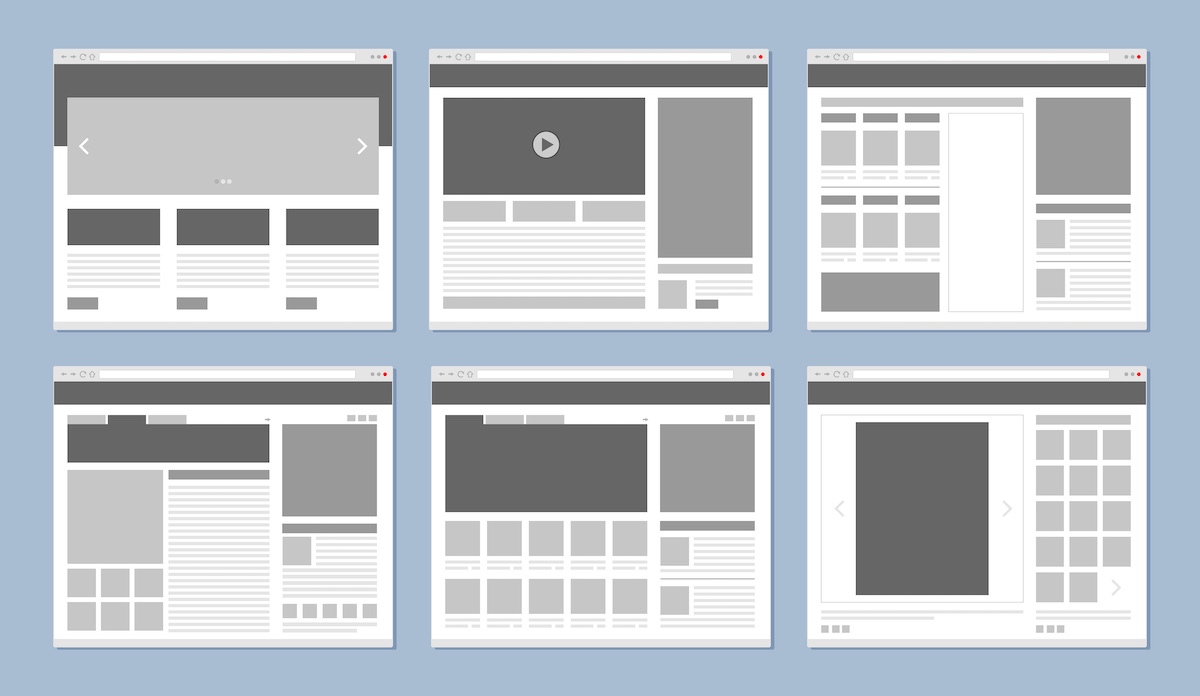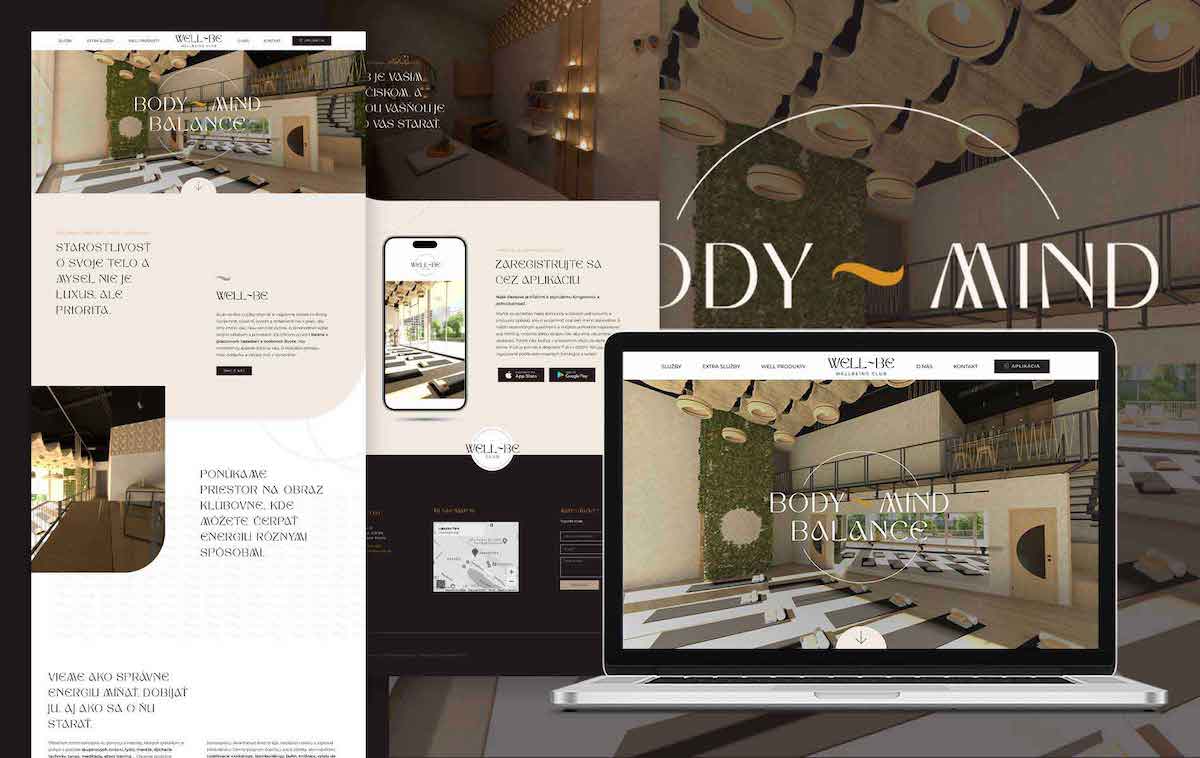How much does it cost to get a website made in Canada in 2026?
A Definitive Guide to Vancouver Web Design Prices
A website is an essential communication tool for any business regardless of size, and one of the biggest challenges can often be the process of setting one up. You have to consider your user base and your business goals of course, but also the crucial consideration of your budget. In fact, one of the most common and important questions clients have when approaching us is “How much does a website cost in Canada?”
Finding a simple solution to this question can be challenging, simply because the prices for web design services in Vancouver can vary so much from agency to agency and from project to project. Vancouver web design prices are advertised across such a wide spectrum (from as little as under $600 to as much as over $60,000), that it can be overwhelming to figure out which web design services are the right fit for your business, and whether or not you are getting the full value of your money. The most important thing to consider as you make your decision is that your business goals and budget always stay in alignment.

How Are Website Design Prices Calculated
Aligning your Budget with Your Goals
The unfortunate truth is that a modern website is no longer a simple digital product with a one size fits all price anymore. Every business has different needs and goals when it comes to their website, and you will have to decide the best way of ensuring your website meets those needs.
5 Primary Website Design Cost Factors
1. Number of Pages
Web pages are the navigational building blocks of your website, and the more of them there are, the exponentially more complicated the web design project becomes. Most simple websites won’t need more than around 15 web pages, but for larger companies and e-commerce stores, the page count can go up significantly
2. Unique Page Designs
For custom websites, each individual page will have its own purposefully-built page design template to help you structure its content. Some web pages can follow the same structure as other similar pages on the site (which saves time and money), while others (such as your home page) will require a unique template just for them. In this case, it is not just the case of how many web page templates you require, but whether someone else will be designing them from scratch that will be a consideration when it comes to price.

3. Functionality
One of the most important determining factors when it comes to price is the unique functions that your website will require. Maybe you run a clinic, and therefore your website needs an integrated online booking form, or maybe you run a renovation company and need a portfolio gallery to show off all your completed projects. A good website will incorporate all of the specific features that are going to make your website an effective tool for your company, but as the number and scope of these functions increases, so too does the price.
4. Degree of Involvement
The more involved you are in your web design project, the cheaper it should be, but this is purely because you will be doing more of the work yourself. You can opt to put yourself in charge of design, development, marketing, content writing, or any other aspect of the process and save yourself from paying for that role, but you will be sacrificing valuable time (and often expertise as well). The larger your budget is, the less you will need to be involved as industry professionals will be able to handle your requirements.

5. Ongoing Fees
The upfront costs of the design and development part of building a website is one half of the equation, but the other half is the ongoing costs of maintaining it. Recurring fees such as web hosting and maintenance costs will also have to be taken into account when creating your website budget.
7 Primary E-commerce Web Design Cost Factors
E-Commerce websites are a larger, more complicated undertaking than most regular business websites, and therefore are priced at a slightly higher rate.
Building an e-commerce website involves several key factors that can significantly impact the overall cost. Understanding these elements will help you budget effectively and ensure your site meets your business needs.

1. Product Pages
Each product sold on your e-commerce store requires its own unique web page, with a complete set of functions specific to the online purchasing experience. The more products you sell, the more pages you will require, which will affect the overall price of the project.
2. Product Variations
Most products are sold while giving the consumer a degree of choice when it comes to customization (for example, you may sell the same mug in both black and white), which means creating variation pages for each product. This complicates the process and will also be taken into consideration when pricing the project.
3. Payment Processing Systems
The main feature that sets e-commerce stores apart from regular business websites is their ability to take secure payment and create a complete digital shopping experience all from one website. This unique function is more advanced and requires third party integration, which is why it will require a slightly larger budget than a simple presentational website would.
4. Inventory Management
A robust inventory management system is crucial for tracking stock levels and updating product availability in real-time. Developing or integrating these systems can increase your website costs.
5. Shipping and Tax Calculations
Automatic shipping and tax calculations streamline the purchasing process but require sophisticated backend development. Customization for different shipping zones and tax laws adds to the overall cost.
6. User Accounts and Personalization
Allowing users to create accounts, save preferences, and track orders enhances customer experience but requires additional design and database management, increasing the cost.
7. Ongoing Maintenance and Support
After the website is live, ongoing maintenance is necessary to ensure smooth operation. This includes software updates, security patches, and customer support, all of which are additional expenses.
Note: While it’s possible to use DIY platforms, investing in a professionally designed e-commerce site by an experienced agency ensures that all these factors are expertly handled. This not only makes your site more effective but also enhances its ability to convert visitors into customers, ultimately making your business more profitable.
How to Build Your Website: 3 Options and Their Costs in Canada
When building a website, you have three main options, each with its own strengths, limitations, and costs:
1. Website Builder
Offered by various hosting companies, website builders are very easy to use and budget-friendly. However, they come with significant limitations in customization and are best suited for personal websites or projects with a very limited budget.
See web design cost for website builders >
2. Content Management System (CMS)
Provides more flexibility and control, allowing for greater customization. This option is ideal for those with some technical skills who want more say in the web design process.
See web design cost for website CMS platforms >
3. Custom Website by a Designer/Agency
This is the most comprehensive option, ideal for businesses seeking a unique and professional online presence. While it may come with a higher price tag, working with an agency ensures your website is expertly designed to drive conversions. Agencies tailor the design process to align with your brand’s identity, optimizing every element to attract and convert visitors. Investing in professional design means investing in a website that not only looks great but also performs effectively, leading to increased profitability.
See web design cost for custom websites >
Our article on what is the best CMS platform to build your website breaks these down further.

1. Website Builders Web Design Cost
Website builders are the simplest and cheapest option. They are platforms which integrate web hosting and security features right into your website, eliminating the need to find other (paid) services to take care of these things. They require no coding skills whatsoever to use, and have a range of free/cheap templates to choose from in order to structure your website around, making them ideal for beginners. The major drawback is that they are extremely limited when it comes to customization and functionality.
Website builders will offer a variety of subscription plans, typically ranging from $0 to about $50 per month, which include hosting, security, and themes. You will have to pay extra for your domain name, any separate apps you want to integrate, and e-commerce features. Popular website builders include Wix, Squarespace, Weebly etc.
Website design prices for individual website builders
| Feature | Wix | Squarespace | Shopify | GoDaddy | Hostinger | Weebly |
|---|---|---|---|---|---|---|
| Price Range (CAD) | $0 – $209.88 | $21.12 – $64.68 | $51.48 – $526.68 | $22.43 – $65.99 | $3.95 – $6.59 | $0 – $34.32 |
| SSL | Yes | Yes | Yes | Yes | Yes | Yes |
| Domain Included | Yes (except Free) | Yes | Yes | Yes (with annual plan) | Yes | Yes (except Free) |
| Hosting Included | Yes | Yes | Yes | Yes | Yes | Yes |
| E-commerce Suitable | Yes | Yes | Yes | Yes | Yes (higher tier) | Yes (higher tier) |
| Brochure Suitable | Yes | Yes | No | Yes | Yes | Yes |
| Key Features | 800+ templates, AI tools, 300+ apps | 100+ designer-crafted templates, marketing tools, advanced e-commerce features | Comprehensive e-commerce platform, advanced shipping tools, international pricing | AI website builder, integrated marketing tools, e-commerce functionalities | AI tools for website creation, affordable pricing, e-commerce functionalities | Easy-to-use builder, customizable templates, integrated e-commerce features |
| Pros | Versatile, user-friendly, extensive customization, strong e-commerce tools | High-quality templates, user-friendly interface, ideal for creatives and small businesses | Robust e-commerce features and integrations, ideal for online sales | Simple and straightforward, good for beginners and small businesses | Very cost-effective, good for startups and small projects | User-friendly, good for small businesses and personal sites |
| Cons | Cannot switch templates, some templates may need mobile optimization | Limited language support, AI tools generate fairly generic output | Higher cost, limited design flexibility outside of e-commerce features | Limited customization options, fewer advanced features compared to other builders | Limited scalability and customization options | Limited advanced features, fewer customization options |
2. CMS (Content Management Systems) Web Design Cost
Content Management Systems (CMS) are the next cheapest but considerably less simple option. They are platforms that require external hosting and security features, as well as some coding skills in exchange for complete creative control over your website. Many CMSs are free to use upfront but have additional fees in the form of plugins, themes, hosting, security, and any development help you may need. Depending on your degree of technical expertise, you can have the most control over your budget with a CMS, but you will have to give up more of your time and effort.
Hosting is the most essential cost associated with CMS, running you anywhere from $3 to about $80 per month depending on your needs, but you will also have to consider your domain ($15-$80 per year), theme (for example from ThemeForest – roughly $25-$100 per theme), and any additional features you choose to integrate, the costs of which can vary wildly. Popular CMS’ include WordPress, Joomla, and Drupal.
Website design prices for individual CMS
| Feature | WordPress | Joomla | Drupal | Squarespace | Wix |
|---|---|---|---|---|---|
| Price Range (CAD) | Free | Free | Free | $28 – $85/month | $30 – $277/month |
| Plugins/Integrations | Extensive library of free and paid plugins | Wide range of free and paid extensions | Comprehensive collection of modules for added functionality | Built-in integrations, additional plugins limited | 300+ apps in the Wix App Market |
| Themes | Thousands of free and premium themes ($25-$100) | Various templates available, including premium options ($35-$90) | Multiple free and paid themes ($35-$90) | Professional, customizable templates included | 800+ templates, customizable |
| Hosting/Domain Cost (CAD) | $3 – $80/month for hosting, $15 – $80/year for domain | $5 – $70/month for hosting, $15 – $80/year for domain | $6 – $80/month for hosting, $15 – $80/year for domain | Included in subscription | Included in subscription |
| Ease of Use | Intermediate | Advanced | Advanced | Beginner | Beginner |
| Customizability | High | High | High | Medium | Medium |
| E-commerce Suitable | Yes | Yes | Yes | Yes | Yes |
| Brochure Suitable | Yes | Yes | Yes | Yes | Yes |
| Key Features | Extensive plugin library, customizable themes, SEO tools | Flexible and powerful, multilingual support, extensive user permissions | Highly flexible, strong security features, customizable content types | All-in-one platform with hosting and templates included, user-friendly | Drag-and-drop builder, extensive templates and apps |
| Pros | Highly customizable, large community support, free to use | Highly customizable, strong community support | Highly customizable, robust security | Easy to use, great design templates, includes hosting and domain | Very user-friendly, no coding required, includes hosting and domain |
| Cons | Requires some coding skills, can be time-consuming to set up and maintain | Steeper learning curve, fewer plugins/themes compared to WordPress | Very steep learning curve, requires significant coding skills | Less flexible than open-source CMS, higher cost | Limited customization compared to open-source CMS, higher cost |

3. Web Designers/ Agencies Web Design Cost
Web designers or web design agencies are by far the most expensive option, but they can easily be one of the best investments you can make for your business. This is the hardest cost to estimate as many factors such as whether they are a freelancer or an established agency, the complexity of your project, and the specific services they will be providing will have to be taken into account.
Web designers include the themes and plugins, and often also the hosting and security costs within their quote upon consultation, meaning that for the most part you won’t need to worry about external costs, however, ongoing fees such as maintenance will still apply. As you will be working directly with a person instead of a platform, it is vital that you do your research and ensure that whoever you hire will be able to deliver the quality product that you are looking for.
Website design prices for web designers/ web design agencies
| Feature | Freelancer | Small Agency | Large Agency |
|---|---|---|---|
| Service Type | Freelancer | Small Agency | Large Agency |
| Small Business Website Cost (CAD) | $1,000 – $5,000+ | $3,500 – $20,000+ | $20,000 – $100,000+ |
| Corporate Website Cost (CAD) | $1,500 – $7,000+ | $7,000 – $25,000+ | $25,000 – $120,000+ |
| E-commerce Cost (CAD) | $2,000 – $8,000+ | $5,000 – $30,000+ | $30,000 – $150,000+ |
| Service Website Cost (CAD) | $1,200 – $6,000+ | $4,500 – $22,000+ | $22,000 – $110,000+ |
| Hourly Rate Range (CAD) | $40 – $100/hour | $75 – $200/hour | $100 – $300+/hour |
| Included Services | Themes, Plugins | Themes, Plugins, Hosting, Security, potential for additional services like SEO, branding, and marketing | Themes, Plugins, Hosting, Security, additional services like SEO, branding, marketing, and custom development |
| Maintenance Fees (CAD) | – | $50 – $600/month | $300 – $1,200+/month |
| Turnaround Time | 1 – 3 months | 1 – 6 months | 3 – 12 months |
| Pros | Very low cost | Balance between cost and comprehensive services | High-quality, comprehensive services, extensive support |
| Cons | Limited scalability, varying quality, potential reliability issues, limited support, may lack advanced features | Higher cost than freelancers | Highest cost, longer turnaround time |
Additional Costs to Consider in Web Design Pricing
When budgeting for a website, it’s essential to account for additional costs that go beyond design and development. These expenses can significantly impact the total website pricing and are critical for maintaining and optimizing your site’s performance and visibility.
1. SEO Optimization Costs
Investing in SEO services ensures your website ranks well on search engines like Google, helping you attract organic traffic. The cost of SEO depends on the scope and level of expertise required and can vary depending on your overall web design pricing strategy.
- DIY SEO Tools: Platforms like Ahrefs or SEMrush cost $100–$300/month and are suitable for small businesses.
- Freelance SEO Experts: Pricing typically ranges from $500–$1,500/month, depending on the services provided.
- SEO Agency Services: For comprehensive SEO strategies, expect to pay $1,500–$5,000/month or more for high-level campaigns.
2. Content Creation Costs
High-quality content is the backbone of a successful website. From blog posts to product descriptions, content plays a pivotal role in engaging users and boosting SEO rankings.
- Blog Posts: Professional blog writing costs $50–$500 per post, depending on length and expertise.
- Landing Pages: Custom landing pages designed for conversion can range from $200–$1,000 each.
- Product Descriptions: For e-commerce websites, descriptions can cost $20–$50 per product.
3. Other Costs to Factor In
In addition to SEO and content writing, several other expenses are crucial for a complete web design pricing plan:
- Email Marketing Integration: Tools like Mailchimp or HubSpot can cost $20–$300/month.
- Third-Party Plugins or APIs: Advanced functionality such as booking systems or payment gateways may cost $100–$1,000 annually.
- Stock Images and Videos: Quality visuals for your website can range from $20–$200 per asset, or more for custom photography.
| Service | Estimated Cost | Description |
|---|---|---|
| SEO Tools | $100–$300/month | DIY platforms like Ahrefs, SEMrush. |
| SEO Freelancers | $500–$1,500/month | Basic keyword research, on-page optimization. |
| SEO Agencies | $1,500–$5,000/month | Comprehensive SEO strategies and reporting. |
| Blog Writing | $50–$500/post | Professional blogs to boost engagement. |
| Landing Page Creation | $200–$1,000/page | High-converting custom landing pages. |
| Stock Images/Videos | $20–$200/asset | Royalty-free or custom visuals. |
| Email Marketing Tools | $20–$300/month | Platforms like Mailchimp or HubSpot. |
| Plugins/APIs | $100–$1,000/year | For advanced website functionality. |
Curious About Your Web Design Cost?
Wondering how much it would be to bring your vision to life?
Get a free, no-obligation quote today!
Frequently Asked Questions
1. How much does a 20-page website cost?
The cost of a 20-page website can vary significantly based on the complexity and the service provider. If you hire a freelancer, expect to pay between $1,500 and $8,000. A small agency might charge from $7,000 to $30,000, while a large agency could cost you $25,000 to $150,000 or more. These prices typically include design, development, and basic functionalities like SSL and hosting.
2. How much does a 5-page website cost?
A 5-page website is generally less expensive. For a simple site, you might pay between $500 and $2,500 if using a freelancer. Small agencies typically charge between $2,500 and $7,000, and larger agencies might range from $7,000 to $15,000, depending on the design and functionality required.
3. What is the average cost of a website?
The average cost of building a website ranges from $1,000 to $10,000 for a basic site created by a freelancer, while a more complex site developed by a professional agency can cost between $5,000 and $50,000. Factors affecting the price include design complexity, required functionalities, and whether ongoing maintenance is included.
4. How much does a WordPress website cost?
The cost of a WordPress website can vary widely based on several factors, including design complexity, functionality requirements, hosting plans, and additional features.
1. Basic WordPress Website Costs:
- Domain Name: Typically ranges from $10 to $30 per year.
- Hosting: Shared hosting can cost as little as $3 to $10 per month, while more robust options like VPS or dedicated hosting range from $20 to $100+ per month.
- Themes: Free themes are available, but premium themes can cost between $30 and $200 as a one-time fee.
- Plugins: Many plugins are free, but premium plugins with advanced functionalities can cost anywhere from $20 to $200 per year.
- SSL Certificate: Some hosting providers include this for free, but if not, expect to pay between $10 and $100+ annually.
2. Development WordPress Website Costs:
- DIY Setup: Using pre-made themes and free plugins can keep your costs low, potentially under $100 for basic setup.
- Freelancer: Hiring a freelancer can range from $500 to $5,000+ depending on the project’s complexity.
- Agency: Small agencies might charge between $3,000 and $10,000, while larger agencies can charge $10,000 to $50,000 or more for a fully customized site
3. Maintenance and Ongoing WordPress Website Costs:
- Regular Updates: Essential for keeping your site secure and running smoothly. This can range from $100 to $500 annually if you handle it yourself, or higher if you outsource.
- Premium Support and Custom Development: Additional customizations or support can cost $70 to $150 per hour for freelancers, or $100 to $300+ per hour for agencies.
In summary, a simple WordPress website can be built for as low as $100 per year if you use free themes and plugins and handle maintenance yourself. For more complex and professional websites, the costs can range from $1,000 to $50,000 or more, depending on the level of customization and professional help required.
5. How much does it cost to maintain a WordPress website?
Maintaining a WordPress website involves several costs, which can vary significantly depending on the size, complexity, and specific needs of your site. Here’s a detailed breakdown of the potential costs:
- Hosting: Hosting costs can range from $3 to $500 per month, depending on the type of hosting (shared, VPS, or dedicated) and the level of service you require.
- Domain Name: The annual cost for a domain name typically ranges from $10 to $30, though it can go up to $130 depending on the domain extension and registrar.
- SSL Certificate: Essential for website security, SSL certificates can cost between $10 and $100+ per year. Some hosting providers include this for free.
- Premium Themes and Plugins: While many themes and plugins are available for free, premium options can enhance functionality and design. Premium themes usually cost around $30 to $200 as a one-time fee, and premium plugins can range from $20 to $200 per year.
- Maintenance Services: Regular maintenance, including updates, backups, and security scans, is crucial. DIY maintenance might cost you about $15 to $100 per month. Hiring a professional or an agency for these tasks can range from $50 to $1,500 per month depending on the complexity and size of the website.
- Technical Support: Costs for technical support vary widely. Basic support might be included in your hosting plan, but advanced support services can range from $100 to $300+ per month.
In summary, maintaining a WordPress website can cost anywhere from a few hundred to several thousand dollars per year, depending on your site’s specific requirements and the level of professional assistance you opt for. Regular maintenance ensures your site remains secure, up-to-date, and functional, providing a better experience for your users and helping to avoid costly issues down the line.
6. Do you have to pay monthly for a website?
Yes, there are ongoing monthly costs associated with maintaining a website. These costs include hosting fees, which can range from $2 to $150 per month depending on the type of hosting (shared, VPS, or dedicated). Additional monthly costs may include domain renewal ($10-$25 per year), SSL certificates ($0-$250 per year), and any premium plugins or integrations.
7. Can I make a website for free?
Yes, you can create a website for free using platforms like WordPress.com, Wix, and Weebly. These platforms offer free plans that include basic website building tools and hosting. However, free websites often come with limitations such as ads, non-custom URLs, limited functionality, and poorer search engine visibility. To remove these limitations and access advanced features, you may need to upgrade to a paid plan.

To Conclude…
Making your decision
As with any purchase consideration, you have to look at the value of what’s included – two website design projections at different costs may look the same on the outside, but will the sites be of the same quality? Is one going to be search engine optimized and responsive? Will one let you have much more input than the other? Does one only allow for a certain number of revisions? Evaluate how important each of the other factors beyond simply “number of web pages” are to you, and how well you think the finished website will serve you in the future.
The costs of building a website can vary so much that ultimately you need to consider where you can gain the greatest value for money to align with your current business goals. A more expensive website may seem like a risky investment, but it may attract 20 times the number of visitors or leads that a free one would. So eventually, it will bring you more profit and ends up as a cheaper investment compared to the one that was cheaper initially but brought you smaller or no profit at all.
Consider not only how much money but how much time and effort you are willing to put into the project, but also note that the job is not finished once you have launched your completed website. Once it is built, you still need to update, market, and drive traffic towards it so that it can do the job of servicing its visitors.
All in all, finding a solution that falls in the middle of your budget, timeline, and business goals is the ultimate way to build your website. We at Idea Marketing would love to throw our hat in the ring and give you a free quote for your web design project. Get Your Free Quote Now!
